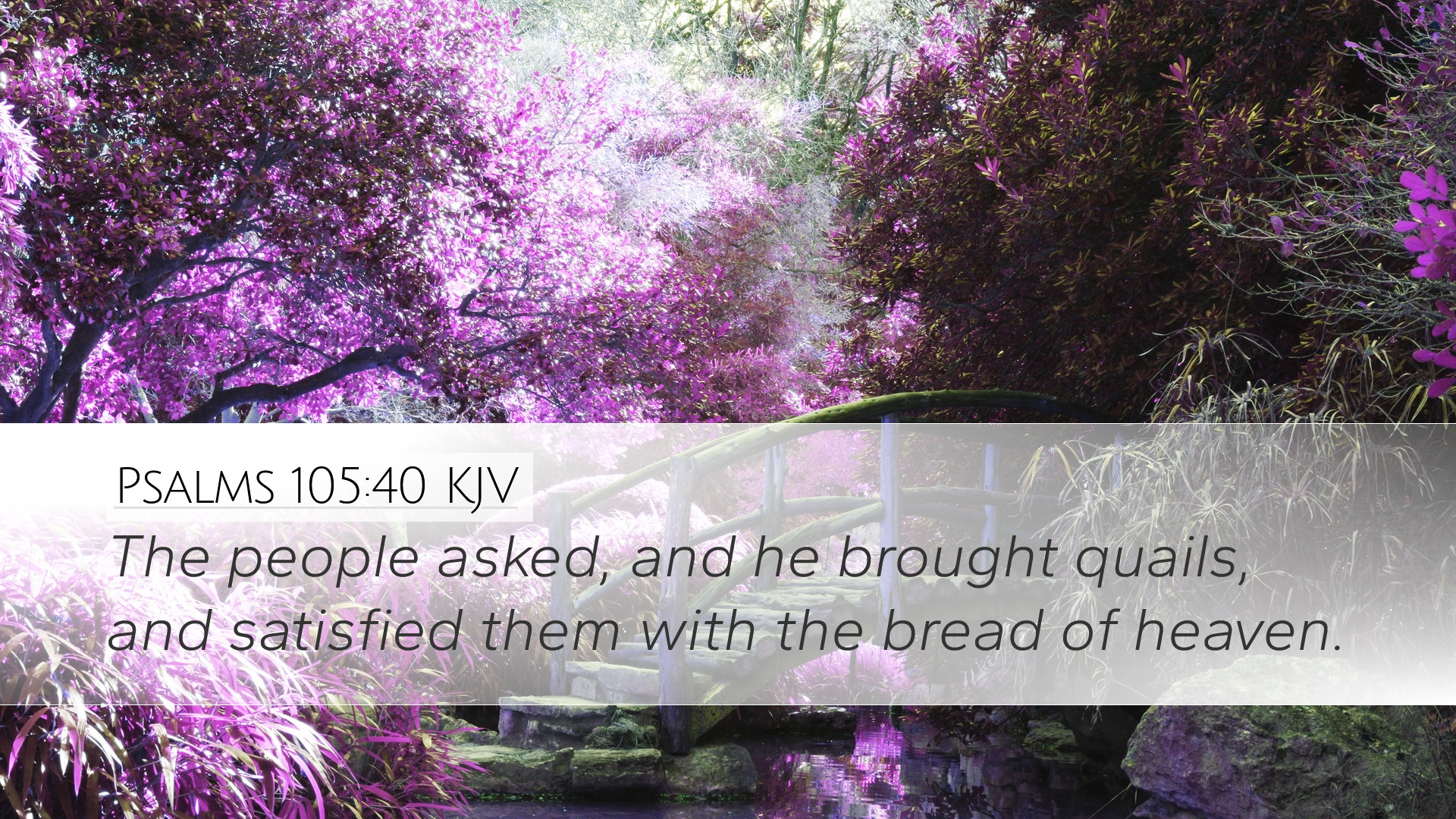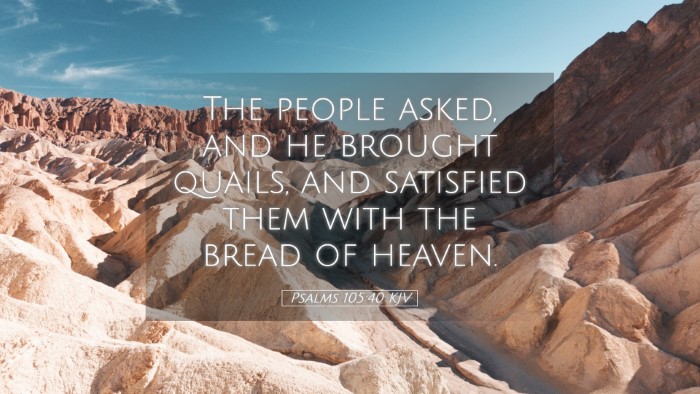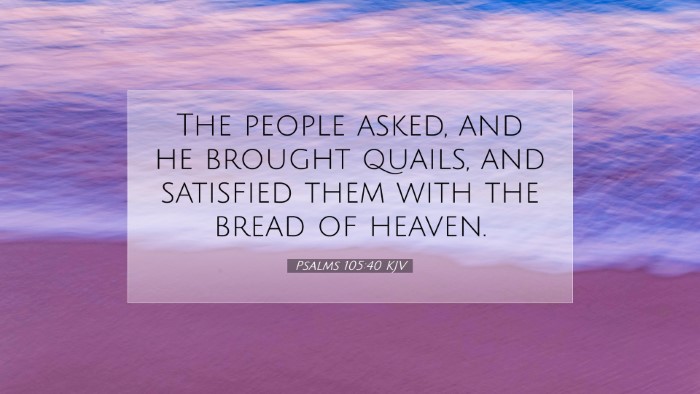Psalms 105:40 Commentary
Psalms 105:40 states, "And they asked, and he brought quails, and satisfied them with the bread of heaven." This verse encapsulates a divine provision that is both merciful and abundant, reflecting the character of God as a provider and sustainer. Below is a compilation of insights from various public domain commentaries.
Contextual Overview
The context of Psalms 105 is a historical recounting of God’s faithfulness to Israel, emphasizing His covenant relationship and the miraculous acts performed during the Exodus. This particular verse deals with the miraculous provision of quails and bread from heaven (manna), underscoring the sustenance God provided during their journey through the wilderness.
Key Themes
- Divine Provision: This verse highlights God’s willingness to respond to the needs of His people. The Israelites' request for food is met with His abundant supply.
- Faithfulness of God: The miraculous feeding illustrates God's unchanging nature and His commitment to His covenant, reaffirming His promises to sustain His people.
- Response to Prayer: The fact that the Israelites "asked" signifies a call to God amidst their need, emphasizing the importance of seeking God in times of want.
Commentary Insights
Matthew Henry's Commentary
Matthew Henry draws attention to the notion of prayer in this verse: the Israelites asked for sustenance, and God responded positively. He comments on this interaction as a model for believers, indicating that God delights to hear the requests of His people. Henry notes that the quails, being a rich source of nourishment and the bread of heaven (interpreted as manna), represent God's lavish generosity. He emphasizes that both the request and the provision are integral to the covenant relationship, which is marked by divine assurance and satisfaction.
Albert Barnes' Commentary
Albert Barnes points out that the mention of "quails" signifies a physical, earthly sustenance that God provided, whereas "bread of heaven" symbolizes a spiritual nourishment. He explains that the quails came in abundance at God’s command, illustrating the power of God to supply everything necessary for life. Barnes also differentiates between earthly bread and the bread that symbolizes spiritual fulfillment, suggesting that this duality invites believers to recognize both physical and spiritual needs. He emphasizes that the readiness with which God provides should inspire trust and gratitude among God’s people.
Adam Clarke's Commentary
Adam Clarke takes a detailed look at the request of the Israelites and the subsequent divine response. He emphasizes the miraculous nature of God's provision, highlighting the logistics involved in supplying food for such a vast number of people in a desert environment. Clarke elaborates on the significance of the "bread of heaven," suggesting it as a foreshadowing of Christ, who later refers to Himself as the true bread from heaven (John 6:32-33). He connects the physical provision in the wilderness to the spiritual nourishment believers receive through faith in Christ, framing this historical episode as a precursor to the New Testament revelation of God’s ultimate provision through Jesus Christ.
Theological Implications
This verse reveals crucial theological implications regarding God’s care for His creation. It emphasizes the necessity of human reliance on divine grace and generosity. The act of asking is demonstrated in the context of prayer, which is foundational for the believer's relationship with God. It serves as a reminder that while God knows our needs, the act of asking signifies our dependence and recognition of His lordship.
Implications on Prayer
The message embedded in this text encourages believers to approach the throne of grace with confidence. The Israelites, having experienced hardship, earnestly turned to God with their needs, illustrating that one should never hesitate to come before God. This verse reinforces the reality that prayer is not merely a ritual but a sincere communion with God who cares for and attends to the needs of His people.
Spiritual Nourishment
Moreover, the duality of sustenance offered in this passage – the physical quails and the spiritual bread – illustrates a holistic approach to well-being. It is not only the material needs that God cares for but also the spiritual hunger within every person, which is fulfilled through Christ. Just as God provided for Israel in their time of need, He continues to offer eternal sustenance through His Son, who embodies the Bread of Life.
Conclusion
Psalms 105:40 offers a rich tapestry of insights concerning God’s providential care and nurturing character. The intertwining of physical and spiritual provisions encourages believers not only to seek God for their earthly needs but also to hunger for the deeper, spiritual fulfillment found in Christ. As pastors and theologians reflect on this verse, it serves as an invitation to foster a deeper reliance on God, encouraging communities of faith to ask, seek, and trust in the Lord’s abundant provisions.


